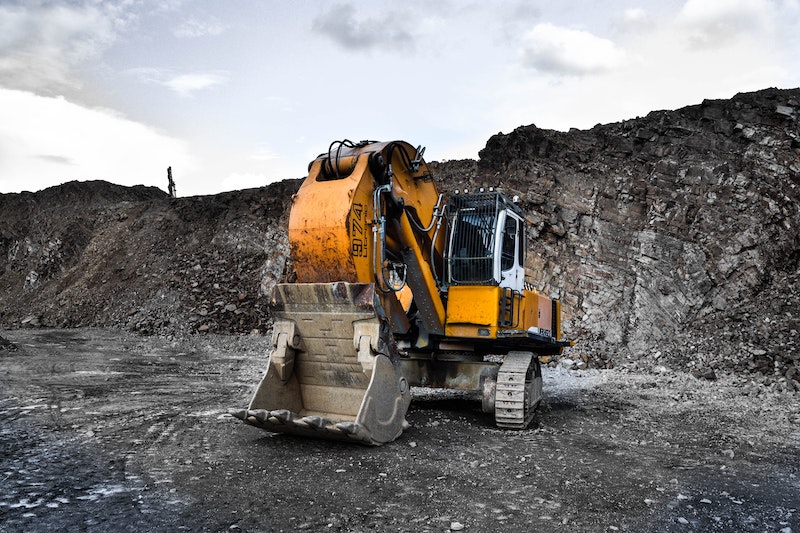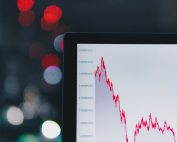Citigroup Reduces Stake in Cabot Corporation: What Does This Mean for Investors?
June 20, 2023

🌥️Trending News
It works in a variety of industries, such as rubber and adhesives, fuel cells, and surface coatings. Recently, Citigroup has reduced its stake in Cabot Corporation ($NYSE:CBT), leaving many investors wondering what this means for their investments. The implications of Citigroup’s reduction in Cabot Corp. holdings for investors are twofold. First, it may indicate that Citigroup is not as bullish on Cabot Corporation as it once was, which suggests caution for investors who may be looking to buy the stock. On the other hand, the reduction in Citigroup’s stake could create an opportunity for new investors to buy the stock at a lower price point. Ultimately, investors should analyze the current market trends and the financials of Cabot Corporation before deciding whether or not to buy its stock. In conclusion, Citigroup’s reduction of its stake in Cabot Corporation may cause some investors to hesitate before buying the stock.
However, it could also create an opportunity for investors to purchase the stock at a lower cost. Whatever decision investors make, they should consider the market conditions and the financials of Cabot Corporation before committing to any investment.
Share Price
On Thursday, CABOT CORPORATION stock opened at $76.0 and closed at $74.7, down by 1.4% from its previous closing price of $75.7. This drop in stock prices was due to a news announcement that Citigroup had sold a large portion of its stake in CABOT CORPORATION. The announcement of Citigroup’s divestment from CABOT CORPORATION has left investors wondering what this may mean for the future of the company. Citigroup’s divestment could be an indicator that the company does not have confidence in CABOT CORPORATION’s future. As such, investors may be concerned about the potential risks associated with investing in the company.
Additionally, some investors may see the divestment as an opportunity to buy shares of CABOT CORPORATION at a reduced price, and thus may be more likely to invest in the company. Regardless of the reasons behind Citigroup’s divestment, it is clear that investors need to be mindful of the risks associated with owning CABOT CORPORATION stock. Investors should conduct their own research and analysis before making any decisions in order to make an informed decision about whether to invest in CABOT CORPORATION or not. Live Quote…
About the Company
Income Snapshot
Below shows the total revenue, net income and net margin for Cabot Corporation. More…
| Total Revenues | Net Income | Net Margin |
| 4.26k | 315 | 7.6% |
Cash Flow Snapshot
Below shows the cash from operations, investing and financing for Cabot Corporation. More…
| Operations | Investing | Financing |
| 353 | -197 | -150 |
Balance Sheet Snapshot
Below shows the total assets, liabilities and book value per share for Cabot Corporation. More…
| Total Assets | Total Liabilities | Book Value Per Share |
| 3.52k | 2.29k | 19.57 |
Key Ratios Snapshot
Some of the financial key ratios for Cabot Corporation are shown below. More…
| 3Y Rev Growth | 3Y Operating Profit Growth | Operating Margin |
| 11.1% | 29.6% | 13.0% |
| FCF Margin | ROE | ROA |
| 3.0% | 32.8% | 9.8% |
Analysis
GoodWhale has conducted an analysis of CABOT CORPORATION‘s fundamentals, and based on Star Chart, we classify the company as a ‘gorilla’ – a type of company that is capable of achieving stable and high revenue or earnings growth due to its strong competitive advantage. Given these characteristics, investors who may be interested in CABOT CORPORATION include value investors, growth investors, and dividend investors. CABOT CORPORATION has a high health score of 8/10 with regard to its cashflows and debt, so investors can be assured that the company is capable of sustaining future operations even in times of crisis. In terms of its core fundamentals, CABOT CORPORATION is strong in dividend, profitability, and medium in asset and growth. This indicates that the company has solid financials and the potential to continue to grow in the long-term. More…

Peers
This includes Zeon Corp, DIC Corp, and Kureha Corp, all of which have their own unique strengths and capabilities that pose a direct challenge to Cabot Corp’s leadership position. All four companies are striving to stay ahead of the curve and secure a competitive advantage in the market.
– Zeon Corp ($TSE:4205)
Zeon Corp is a diversified chemical company specializing in chemicals, plastics and synthetic rubbers. It has a market capitalization of 267.99B as of 2022, making it one of the largest chemical companies in the world. It also has an impressive Return on Equity (ROE) of 8.33%, which is higher than the average for the industry. This suggests that the company is efficiently using its resources to generate profits, and is an attractive investment for shareholders. The company has a broad portfolio of products and services, ranging from industrial materials to consumer products, and is well-positioned to benefit from the growth in the chemical industry.
– DIC Corp ($TSE:4631)
DIC Corp is a Japanese chemical company specializing in the production of chemicals, plastics, pigments, and printing inks. As of 2022, the company had a market cap of 231.43B and a Return on Equity (ROE) of 6.52%. DIC Corp’s market cap is indicative of its strong financial performance, as it has been able to generate high returns for its shareholders over the past few years. The company’s ROE is also a measure of its profitability, which suggests that DIC Corp is able to generate profits from the investments it makes. The company has been able to consistently grow its revenue and profits over the years, further demonstrating its strong fundamentals.
– Kureha Corp ($TSE:4023)
Kureha Corp is a diversified chemical company based in Japan. It produces a variety of products including plastics, rubber, and specialty chemicals. With a market cap of 173.31B as of 2022, Kureha Corp is a well-established company that is financially sound. Its Return on Equity (ROE) of 7.94% indicates that the company is able to generate a return on its investments that is higher than the average of the industry. This demonstrates Kureha Corp’s financial strength and shows that the company is well-positioned to continue to succeed in the future.
Summary
Cabot Corporation is a specialty chemicals and performance materials company with high exposure to the industrial, transportation, and energy markets. Recently, Citigroup trimmed its position in Cabot Corporation, causing some investors to be concerned about the company’s prospects.
However, by analyzing Cabot’s financial metrics, there are some positive indicators that point to potential opportunities for investors. The company has been generating positive cash flows, with a strong balance sheet and significant equity. Cabot also has a low debt-to-equity ratio, indicating that it is not overly leveraged.
Additionally, Cabot has been able to maintain profit margins while also increasing its sales growth rate. Finally, its dividend yield is a good indicator of potential future returns. Ultimately, investors should approach Cabot Corporation carefully, considering the risks and rewards of investing in the company before making any decisions.
Recent Posts














